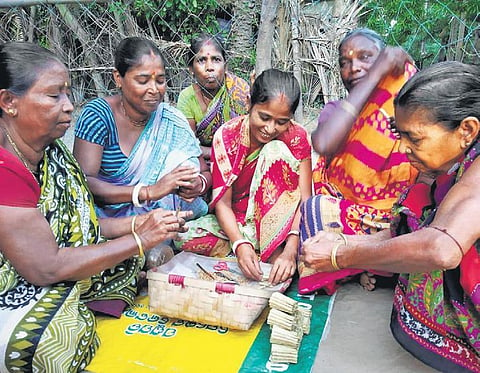

KENDRAPARA: While Labour Day on May 1 celebrates workers and their struggles across the globe, it holds little significance for thousands of beedi binders in Kendrapara who put their lives at risk and struggle for a pittance but continue to be deprived of government welfare benefits.
Sources say that there are at least 5,000 beedi binders in the coastal district who are dependent on this precarious livelihood. They work from dawn to dusk for a meagre Rs 80-150 per day (Rs 100 per thousand beedis).
Besides, beedi workers across all ages are susceptible to respiratory problems and suffer from tuberculosis, chronic bronchitis, asthma, etc due to the nature of the work. Jagajiban Das, a trade union leader of Kendrapara said, working with tobacco daily is hazardous.
Most beedi workers suffer from TB and chronic backache. Many of them also develop pain in knee joints as they sit cross-legged for large part of the day. Women comprise the largest part of the workforce. Children too pitch in and are paid the least of all beedi workers regardless of the amount of work completed, added Das.
Most workers in the beedi industry live below poverty line and come from landless or small-scale agricultural families. As rolling beedis is the only source of survival for many, they work under extreme conditions facing hazardous tobacco dust and fumes with no protective gear and are paid very low wages.
"We make 800 to 1,500 beedis in a day but cannot earn more than Rs 150," said Jinat Khatun (20), a beedi worker from Dobondha village.
Amalin Patnaik, advisor to the civil society movement of beedi workers in India and advisor to the Beedi Shramik Union, said poverty, lack of rest, low immunity, long work hours all make beedi workers prone to numerous health risks.
The plight of beedi workers is similar across the State as their living expenditure grows rapidly while their low wages remain unchanged. Since they work in an unorganised environment, they are economically exploited without government benefits, he said.
On the other hand, an official of the district labour office said, "Beedi workers are entitled to get free medical facilities, house loans and scholarships for children. Welfare commissioner office at Salepur is helping beedi workers."